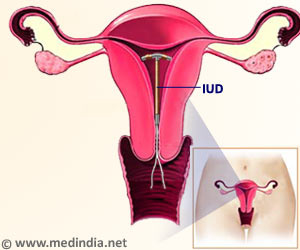Traumatic experiences, both physical and emotional, may trigger endometriosis by causing inflammation and hormonal imbalances, regardless of genetic predisposition.

Observational and Genetic Analyses of Traumatic Experiences and Endometriosis
Go to source). Endometriosis occurs when tissue similar to the uterine lining grows outside the uterus. This condition is common among women and often leads to severe pain and fertility issues for many.
"The motivation for the study was to better understand the potential link between traumatic experiences and the development of endometriosis. Specifically, we aimed to explore whether certain types of trauma were more strongly associated with endometriosis than others, and whether this interaction is independent of genetic predisposition," says Ph.D. candidate Solveig Løkhammer from the University of Bergen's Department of Clinical Science, who collaborated with researchers from Yale, Oxford, and Harvard.
‘Did You Know?
Endometriosis affects 10% (190 million) of reproductive age women and girls globally. #medindia # endometriosis #women’





Endometriosis affects 10% (190 million) of reproductive age women and girls globally. #medindia # endometriosis #women’
Advertisement
Understanding the Complexity of Endometriosis Development
The aim of the study has been to uncover new mechanisms that could explain why women develop endometriosis, a condition that is still not well understood. The study examined various types of trauma occuring in childhood and adulthood.The results showed that women with endometriosis more frequently reported experiences such as physical and sexual violence, witnessing a sudden death, and receiving a life-threatening diagnosis.
The traumas ranged from direct physical trauma, such as sexual assault, to more indirect forms, such as emotional trauma or a lack of support from caregivers during childhood.
The researchers cannot yet say for sure what is causing this possible connection.
Advertisement
Trauma-Induced Inflammation and Hormonal Imbalances
One hypothesis is that trauma may trigger or exacerbate chronic inflammation and disrupt hormonal balance, which could promote the development of endometriosis. Additionally, long-term stress may affect the immune system and pain perception, potentially worsening the symptoms of endometriosis, Løkhammer explains.Low Genetic Risk Does Not Protect Against Trauma-Linked Endometriosis
The study also suggests that the relationship between trauma and endometriosis is independent of any genetic risk factors for the condition. This implies that even individuals with a low genetic risk for endometriosis could be at risk for developing the disease if they have experienced significant trauma, says Løkhammer.The study suggests that traumatic experiences, both physical and emotional, may contribute to the development of endometriosis. The findings highlight how trauma-induced inflammation and hormonal imbalances could play a role, regardless of genetic risk. This research offers new insights into the complex factors behind endometriosis.
Reference:
- Observational and Genetic Analyses of Traumatic Experiences and Endometriosis - (https://jamanetwork.com/journals/jamapsychiatry/article-abstract/2829592)
Source-Eurekalert















